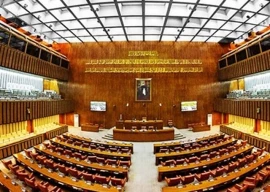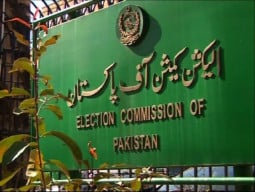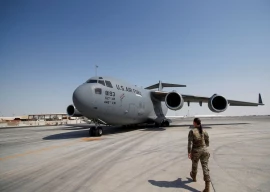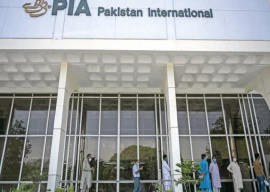
The World Bank (WB) on Thursday approved an assistance package worth $400 million to help Pakistan improve access, quality and relevance of education at every level.
In an announcement, WB said that the projects have been designed to improve conditions for teaching, learning and research for enhanced access, quality and relevance at the tertiary level across the country while continuing to increase enrollment rates and reduce gender and rural-urban disparities in primary education in Punjab and Sindh provinces.
“Pakistan’s transition to a middle-income country in the global knowledge economy of the 21st century will depend critically on the country’s intellectual and human capital,” said World Bank Country Director for Pakistan Rachid Benmessaoud.
“To achieve this objective, Pakistan needs to upscale its entire education system so it can produce skilled, innovative and enterprising graduates, as well as research and innovation capacity, capable of promoting dynamic economic development,” he said.
A $300 million equivalent ‘credit for the tertiary education support project’ will finance the government’s tertiary education development programme and will leverage an estimated investment of approximately $1.7 billion in additional resources from the government.
The project will support the implementation of the government’s Medium Term Development Programme for tertiary education aimed at mitigating weaknesses, while ensuring fiscal sustainability and effectiveness of expenditure in the tertiary education sector, WB said.
The additional financing for the Punjab Education Sector Project of $50 million will continue to build upon both projects’ success through attracting more children to school by providing free textbooks, stipends to secondary school girls and subsidies to low-cost private schools.
The additional financing for the Sindh Education Sector Reform Project of $50 million targets improvements in service delivery and system performance by supporting government efforts in three areas - preparation of school-specific non-salary budgets, teacher rationalisation across schools and allocation of teaching posts to schools and expansion of district education management reforms.
“The tertiary education project will utilise a results-based financing modality in which funding is provided based on demonstrable improvements and realisation of development goals,” said South Asia Education Sector Manager Amit Dar.
“We anticipate that around 1.2 million students and approximately 20,000 academic staff in 73 public and 24 private universities and about 800 affiliated colleges across the country will benefit from specific interventions under the project. The additional financing in Punjab and Sindh will lead to further critical improvements in access and quality at the basic education level in these provinces,” he added.
The credits for the Punjab and Sindh education projects are from the International Development Association (IDA), the World Bank’s concessionary lending arm, and carry a 0.75 per cent service fee, a 10-year grace period and maturity of 35 years.
For the tertiary education project, $110 million of the IDA credit will carry a 0.75 per cent service charge, maximum commitment charge at 0.5 per cent, a 10-year grace period and a maturity of 35 years. The $190 million IDA credit will also include a fixed interest charge of 3.2 per cent.
The Punjab and Sindh education projects also support improvements in school facilities and encourage merit and need-based teacher recruitment. These are accompanied by initiatives to strengthen professional development for teachers, improve monitoring and evaluation, build capacity of school management councils and the district education management system and improve financial management and procurement systems.
Published in The Express Tribune, March 26th, 2011.
































1714129906-0/Clint-Eastwood-(1)1714129906-0-270x192.webp)






COMMENTS (1)
Comments are moderated and generally will be posted if they are on-topic and not abusive.
For more information, please see our Comments FAQ